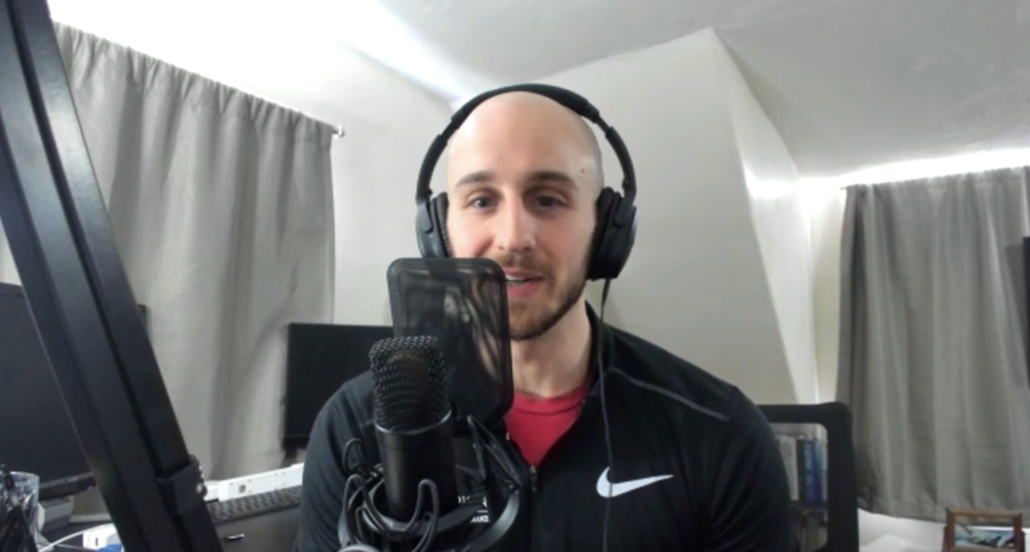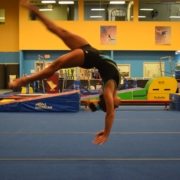Is Insecurity and Fear of Social Judgement Driving Culture Issues In Gymnastics?
Table of Contents
The Problem
Changing gymnastics culture is by far the biggest conversation we are having in our sport. In my opinion, when you dig down to the real root issues two commonalities pop up: personal insecurities and/or fear of social judgment.
These two things can be very dangerous. The reason is that people may become addicted to attention and external validation from others, or may have questionable motives that guide their decision making.
If left unchecked, insecurity and fear of judgment can cause people to start making decisions not based on logic and morals, but based on emotion, fear, or the desire for instant gratification. Many times this is in an effort to close the gaps in their personal insecurities or to reduce the risk of social judgment/rejection.
Every person involved in gymnastics – coaches, gymnasts, parents, and medical providers, share these root issues.
We all have the same share an emotion-fueled voice in our head telling us we’re not good enough or that things will always have a negative outcome. However, we all also share a logic fueled counterpart that can help us consider the long term implications of our decisions. It can help us reframe the narrative about a situation and consider multiple points of view.
As a culture, we must individually and collectively learn to manage these voices. We must also accept our personal insecurities/fears, and commit to making better choices day by day. This is how we will meaningful and significant change in the years to come.
Before I give some examples, remember I wrote an entire 16 chapter book that is available for free download here called “Changing Gymnastics Culture” where I offer all my thoughts.
Gymnastics Coaches
Looking back at my younger years as a coach, many of my own periods of struggle centered around fear of judgment and insecurity. My own personal insecurities about not being intelligent enough, or a “good coach” manifested as me having a huge ego and making some coaching decisions I am not proud of. If you haven’t read the article where I talk about the worst day of my life in my coaching career from this ego, you can read that here.
I cared way more about the opinions of other people than my opinion of myself. Worrying about what other coaches thought of my or the level of skills our gymnasts we’re competing, what parents thought about me as a coach, or about if I was liked by my social circles, created a very chaotic environment in my head and in our gym.
Gymnasts
For gymnasts, these two things also drive much of the behavior that can become problematic in negatively impacting culture. Personal insecurities about being ‘good enough’. Wanting social acceptance from peers and fearing rejection. And a huge one – placing too much value on getting approval from coaches or parents can spark mental health issues for athletes. Between school, social media, and gym life, it can feel like constantly living under a microscope. It sadly is linked to rising levels of anxiety, depression, overuse injury, and burnout in athletes.
Not to mention, it indirectly impacts gymnastics progression. Low motivation levels, the effects of chronic stress from social pressures, and low energy levels all directly undermine high-quality practices and the ability to train or perform well.
Parents
For parents, from my observations, the same issues manifest in a different way. Let me be clear – most parents just want their kids to be healthy and enjoy gymnastics. But for a select few, personal insecurities and the fear of social judgment from other parents can be toxic. It can cause them to ‘coach from the stands’ or put ridiculous pressures on their children.
The primary motive changes from wanting their kids to reach their potential, to wanting to show off to people via Facebook feeds littered with routine videos, trophy pictures, or a college scholarship announcements. When you mix these parental behaviors with the gymnast’s mental health vulnerabilities above, very bad things may happen.
Medical Providers
And lastly, medical providers are not immune to this. I can tell you first hand that in my first few years after graduating, I was extremely insecure about my abilities as a medical provider. I wanted to have all the answers. I wanted to know how to ‘fix’ someone so that they would talk highly about me to their coaches or teammates. This ego-fueled desire for perceived status is not healthy, as it not only generates anxiety but also clouds your decision making.
The Possible Solutions
I by no means claim to have all the answers here, or that I am perfect. I struggle uphill with these things every day like the rest of us. That being said, I do think that there are some patterns I’ve observed in myself and others to help.
I was recently asked by Rebecca Smith, owner of Complete Performance Coaching, to be interviewed about this topic. In our discussion (find the full interview below), we discuss
- Where these issues related to insecurity and fear start from in gymnasts, coaches, or parents
- How these issues lead to burnout and mental health issues
- How having a sound set of morales as a foundation is crucial for better decision making
- The balance between individual accountability and organizational accountability for changing gymnastics culture
- Practical daily advice for combatting insecurity, fear, and negative thought processes
- How coaches, parents, and gymnasts can use these strategies in their daily lives to improve their gym culture
You can listen to the entire interview by clicking on the links below
Is Insecurity and Fear of Social Judgement
Driving Culture Issues In Gymnastics?
Also if you are interested in more conversations aobut how to change gymnastics culture, be sure to check out this articles,
Hope you enjoy it and have a great week!
– Dave
Dr. Dave Tilley DPT, SCS, CSCS
CEO/Founder of SHIFT Movement Science













